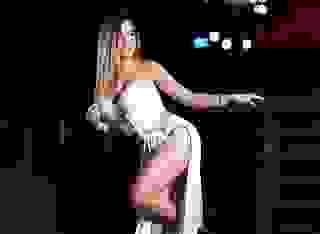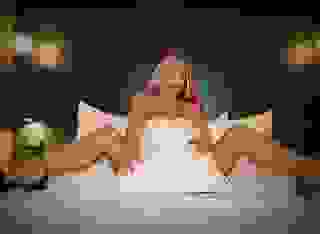- Lesbian Sex
- Time After Time
Note: You can change font size, font face, and turn on dark mode by clicking the "A" icon tab in the Story Info Box.
You can temporarily switch back to a Classic Literotica® experience during our ongoing public Beta testing. Please consider leaving feedback on issues you experience or suggest improvements.
Click hereSomething a little off-beat this time. It is a lesbian love story but that might not be immediately obvious so please bear with me. 'Time After Time' is a long story—there will be sex but it's secondary to the plot. Anyway, I hope you enjoy it.
Characters in sex scenes are eighteen years old or over. All characters and places are imaginary—any resemblance to persons living or dead is coincidental.
Author's note: For the benefit of US readers who may be unaware, the legal age in the UK for buying alcohol is eighteen.
Copyright © 2017 to the author
* * * * *
1877
The woman in the four-poster bed was dying, her breathing ragged and stertorous. Four other people were in the room, keeping silent vigil: sitting on one side of the bed was the nurse who every few minutes would wipe the sick woman's brow with a damp cloth; at the other side, holding the woman's hand, was her husband, his expression anguished; the doctor and the rector stood close by, ready to give such aid as might be necessary.
The three men had been contemporaries at Oxford University and had remained friends despite the different paths their lives had taken. The husband was now a high-ranking official in the Indian Civil Service, the doctor had a well-regarded practice in London's Harley Street while the rector's living was a comfortable sinecure in an ancient Buckinghamshire parish.
The doctor took the woman's free hand and felt for her pulse. "Not long now, I fear," he said, his voice low.
The husband brought his wife's hand to his lips and kissed it gently. Her eyes opened and she smiled at him. "Thank you for a lovely marriage, dearest Henry," she whispered, then: "I'm so sorry I could never give you a son."
"I had you," the man told her softly, "I needed no-one else."
"You've made me so very happy, Henry." She added a little more audibly: "I know we'll meet again one day." Her eyes closed as she gave a little sigh.
The doctor felt for a pulse again then lowered her hand to the bed and bent forward to lift an eyelid. He nodded, as much to himself as to the others, and patted his friend's shoulder. "She's gone, old man. I'm so sorry. We'll leave you with her for a while so that you can make your farewells." He signalled to the rector and the nurse and both followed him from the room.
"It's ironic," he said to the rector when the nurse had left them to inform the other staff, "All those years in India where they have an abundance of exotic and deadly diseases and Berenice remained unscathed. They return to England on their long leave and she succumbs to a congestion of the lungs."
"At least she had her faith," said the rector, "She knows that they will meet again in the next life." The doctor raised a cynical eyebrow but said nothing.
"Oh, I know you don't hold with what you call mumbo-jumbo," added the rector, noticing the doctor's expression, "But I'm sure her dying words will be a great comfort to Henry. They will meet again in God's mansion, of that I'm certain."
The doctor couldn't contain himself. "My dear Monty, how many times must I explain? We are animals, superior animals, true, but animals nonetheless. We have the one life and at the end of it is oblivion. They are no more likely to meet again than man is to fly to the moon." This was a long-standing dispute between the two although it had done nothing to damage their friendship—in fact, although they were unlikely to admit it, they rather enjoyed the argument.
"Edmund, if you weren't such a decent man, I would really fear for your soul when your time comes. As it is, I believe the good Lord will take into account your generosity of spirit, overlook your shortcomings and admit you to his presence."
* * * * *
The funeral was held on the bleakest of midwinter days with heavy dark clouds piling up from the east, bringing with them the promise of even worse weather. Every now and then there were flurries of icy sleet while a savagely biting wind swept across the churchyard, cutting unhindered through the topcoats and mufflers of the assembled mourners to leave them shivering and uncomfortable.
Although it was not within his parish, the Reverend Montague Peacock conducted the service for his old friend's wife with the blessing of the local vicar, an elderly man who valued his warmth and comfort. At times gusts of wind were so vicious that they tore at the words Peacock was reading from the Book of Common Prayer, shredding and dispersing them, rendering them nigh inaudible: "...we therefore commit her body to the ground; earth to earth, ashes to ashes, dust to dust; in sure and certain hope..."
At last the service ended and the sexton and his helpers lowered the casket into the ground. Henry Chastain was the first to cast a handful of the cold damp earth into his wife's final resting place, to be followed by the others present. He remained by the grave for some time while the mourners gradually made their way back to the rented house where refreshments were to be provided. His friends the doctor and the rector remained with him although they stood back some little way to allow him a private moment.
* * * * *
By late evening the company had dispersed, leaving the three friends alone. "What do you intend to do now, Henry?" asked Dr Edmund Gillam.
"I have a few years to go before retirement so I might as well return to India," Chastain replied, "A packet leaves Tilbury in three weeks time and I'll be on it. Now that Berenice has gone there's little enough to keep me here. I suppose it would be easy for me to obtain a government post in London but I'm used to India and the way of life there. I've made arrangements for a monument to be installed. You will have the grave tended for me, won't you?"
"Of course, old man." Henry's friends raised their glasses in silent toast.
Almost three months later Henry Chastain made landfall in India and quickly threw himself into his work.
1894
The three friends were gathered together in the smoking room of their London club., chairs drawn up close to a roaring fire. The rector drank sherry and favoured an old and much-loved cherry-wood pipe while his companions each smoked fine cigars and held a glass of whisky-and-soda (or chota-peg as Henry Chastain would have it—fortunately the club's waiters were used to visitors from the sub-continent).
"So, what are your plans, Henry, now that you've retired and presumably returned home for good?" enquired the doctor.
"I've taken a place down in Wiltshire, rented on long lease." Henry Chastain drew on his cigar to release a cloud of fragrant smoke. "It's a comfortable house, pleasantly situated in the countryside, and should do me nicely until my time comes. I think I'll enjoy life as a country gentleman."
"You'll be by yourself?"
"Except for staff, yes. Of course, I'll expect regular visits from you two, your duties permitting that is."
"You've never thought of remarrying?" Dr Gillam asked.
"No, I never met anyone who could match Berenice in my eyes and I've become accustomed to my own company. I think I'd make a poor spouse now."
Talk was general, covering mundane matters, for a while until the rector said: "By the way, do you fellows remember a Roland DeVere, up at Oxford when we were?"
"DeVere... DeVere..." mused Henry Chastain, "Ah yes, wasn't he the chap devoted to good works and so on, full of odd ideas, labelled the workhouses degrading and inhumane, always campaigning to have them closed?"
"Oh yes, that's the fellow," said the doctor, "I believe that over the years he became a noted philanthropist"
"That's the one. He inherited a small fortune, never married so he gave considerable sums to charity. He was quite friendly with Charles Dickens I understand—they had similar aims and ideals." Reverend Peacock signalled to a waiter to bring a fresh round of drinks and continued: "Anyway, he died recently; except for a few generous bequests to his servants, he left most of his money to various charities. If ever a man has earned his place in heaven, he has."
Doctor Gillam rolled his eyes. "Monty, how many times—"
"I know, I know..." said the rector, a little testily, "As far as you're concerned, there is no afterlife. Well, I believe there is."
"Though perhaps not necessarily in a heaven," said Chastain.
"What do you mean, Henry?"
"Well, there's always the possibility of reincarnation."
"Hah! Reincarnation?" the rector snapped, "Unchristian nonsense—superstition!"
"Come now, Monty, is the concept any more far-fetched than the idea of a benevolent, white-bearded father-figure presiding over a heaven where we will spend eternity?" This was unusual. Chastain normally left the religious arguments to his two friends.
"What's this, Henry?" said the doctor, "The wisdom of the East we hear so much about?"
"Don't disparage the wisdom of the East," his friend admonished, "I've seen some strange things and I tell you, we could learn much from them."
"Ah, things like the Indian rope trick, I suppose."
"No, I've never seen the rope trick," said Chastain, "I don't really believe it exists. I've never met anyone who has seen it first-hand. It's always a case of someone knows someone who knows someone who has seen it. Fancy and myth, that's all. And if it does exist, then it's most likely fakery. No, I'm referring to some of their philosophies and religious practices. They may seem strange to our western eyes but they have something... they have something..."
Mr Peacock rapped his pipe in the grate to remove the dottle. "And do you really believe in this humbug about reincarnation?"
"I'm not necessarily saying I believe... but I hope that I'm open-minded about it. Many Asian races believe in it. They hold that we all live many lives until such time as we attain perfection—nirvana, some call it. The good or evil you do in this life is weighed against you in your next life and determines your progress or regression. When you have attained nirvana, then you move to a higher plane of existence."
"Assuming there is some truth in it," said Doctor Gillam, "what would you want to come back as? A man of great wealth? A genius? An eminent astronomer discovering a new planet?" He chuckled and grew jocular. "Or if you've been slightly bad, deserving of minor punishment, perhaps as a pampered cat in a comfortable home?"
Henry Chastain sipped his whisky and smiled. "I think perhaps I'd like to come back as a woman, just to see what it's like."
There was a bark of laughter from his friends. "What on earth for?" one of them scoffed, "Women have no rights, they don't even have the vote. Yes, some are now being admitted to universities, even to medical schools, but those places are not truly welcoming, make life damned difficult for them in fact. It would be no fun being a woman, Henry."
"Oh, I think there will be great changes in days to come. I'll wager that within forty or fifty years women will have the vote, be in government even. I'll wager that within a hundred years women will have many rights equal with men."
"Balderdash!" And the three men continued to argue amiably well into the night.
1909
Henry Chastain was dying but then his life had been a long one. At eighty-two he had outlived most, if not all, of his contemporaries including a number of close friends. Montague Peacock had passed away several years previously, serving his parish faithfully to the end. Edmund Gillam was still alive although now becoming more frail by the day. He was here at Henry's bedside together with a new, much younger, doctor, a brisk, no-nonsense sort of fellow whom Gillam tended to scorn for his sad lacking in empathy.
The young man felt for Chastain's pulse then dropped his hand. "Well, the old boy can't last much longer," he said, oblivious as to whether or not Henry could hear him, "Surprised he's lasted this long."
Doctor Gillam's glance was icy, his reply snappy. "The 'old boy' as you call him is ten months my junior. I suppose you're expecting me to fall off the perch any moment now."
There was a rasping chuckle from the bed. "Don't worry, Edmund, he'll learn in time. He'll grow old himself one day. Then he'll find that he clings on to every ounce of life he can." He beckoned his friend closer. "By and large I've had a good life, Edmund, so I can't complain. I've missed Berenice every day but these things happen. So it's my time now—you know, at least one oriental race calls it going into the Great Void where we prepare for being reborn." He seemed to doze only to wake again a few minutes later. "To die will be an awfully big adventure." He closed his eyes and slept. That was the last thing he said. Half-an-hour later he died peacefully and without awakening.
Doctor Edmund Gillam lowered his head. "Goodbye, old friend."
"That was a peculiar thing he said," remarked the young doctor as he helped Gillam to cover the dead man, "That thing about death being an adventure."
"It was a quotation," Doctor Gillam told him, "from the story Peter Pan by that writer fellow, Barrie. And with some of Henry's beliefs about what might happen after death, it could well be an adventure."
The younger man was scathing. "Faugh! Nothing happens after death."
* * * * *
Henry Chastain was gossamer floating on an unearthly breeze. All about him was a radiance of unknown and exotic hues, strange and yet somehow soothing. And then the radiance transformed itself into a long tunnel at the far end of which was a blazing white light, a light of such intensity that the eye could hardly bear to look upon it.
Henry felt himself being drawn towards the brilliance...
1989
Two elderly women leaned over the push-chair to admire the lovely toddler. The child stared back at them, large eyes of an unusually vivid colour—a startling sapphire-blue—unblinking.
"Just look at those eyes. There's something old and knowing about them, a kind of wisdom." The speaker nodded and lowered her voice dramatically. "You could easily think she's been here before."
"Oh yes," said her friend, taking another look at the child, "she's definitely been here before. You can always tell."
The two old women laughed and the tall young mother smiled politely. What the hell are they on about? she wondered.
1992
The small girl had the funny dream again, a dream she'd had perhaps two or three times previously. It wasn't a scary dream like the ones she sometimes had when the older kids told her about ghosts and monsters lurking under her bed in the dark, waiting to pounce on her. It was just... funny... She dreamt that she was lying in a bed in a darkened room. She knew there were others there, an old man and a younger one... Daddy and Grandpa perhaps... but she didn't think so... and then she wasn't in the bed any more but floating towards a light, floating... floating...
2004 - Hal
"You think you're what?" screamed my mother. And when I say screamed I mean screamed. I had known from the outset that this conversation was going to go badly but it had to come out at some stage. It might as well be now as later, get it over with.
"I said I think I'm gay, Mother, I think I'm a lesbian." For a long time, since I was a small girl at primary school, I'd felt that there was something different about me. It had taken me quite a while to figure it out but I'd got there in the end. Emotionally, sexually, I was drawn only to girls.
"No you're not a lesbian—you can't possibly be! No child of mine could be such a wicked pervert!"
"I'm not a pervert!" I said as evenly as I could, "And I'm not wicked—I just find find girls more attractive than boys. In fact, I don't find boys attractive at all."
Mother threw her hands up in horror and screeched again: "You know that lesbians and queer men burn in Hell for eternity! God hates homosexuals!"
"How the hell do you know how God feels about gay people?" When I had decided to come out to my mother, I had promised myself that I'd keep my cool but it was becoming difficult to do so.
"Because I'm one of God's chosen! That's how I know!"
My mother was a member of an extreme fundamentalist church, The Exclusive of the Redeemer. As far back as I could remember Mother had been cold, narrow-minded and unbending. That's why my father had eventually left and found someone else, while my childhood had been devoid of any maternal love and comfort. Since Mother had joined The Exclusive a couple of years previously she had become far worse. There weren't many of them but they could make themselves heard loud and clear, frequently holding town centre rallies at weekends in an attempt to ram their warped version of Christianity down people's throats. In public they were careful to avoid preaching anything that smacked of hate crime but they certainly let themselves go within the privacy of their church: Catholics, Anglicans and other protestant religions, non-Christian religions, agnostics, atheists, homosexuals, you name it, all were fair game for their loathing. As far as The Exclusive were concerned, only the couple of hundred or so of them who made up the church were to be saved, to sit at God's table. The rest of us poor sods, that is the whole world, would suffer for ever in the fiery pit. Well, thinking about it the company in the fiery pit would probably be preferable to eternal supping on hatred-laden heavenly nectar with The Exclusive. I'd read a lot of stories in magazines and newspapers about US Bible Belt fundamentalists and their bigotries. Take it from me, The Exclusive of the Redeemer made the Bible-Belters look open-minded and generous of spirit.
"The Bible tells us that God made us all and made mankind in His image, right?" I said. Mother nodded and clasped her hands as if in prayer. I could imagine a silent: "Hallelujah!" from her. Perhaps I shouldn't have gone down this route but I was getting seriously pissed off. "Well then," I continued, "seeing as God made all of us, that means He made gay people as well as straight, what does that say about God's image?"
Mother's face reddened as she raised a clenched fist and for a moment I really thought she was going to hit me. Then with an effort she lowered the fist. Oddly, her voice became level, almost calm. "That's blasphemy! You're sick, sick and twisted and evil. You will get out of this house now and you will only be allowed back when you're cured of this disease."
"Mother, your sexuality is something you're born with. It's not an illness that can be cured."
"Of course it is!" she snapped, "Homosexuality is a serious mental illness. I suggest you see our GP and ask to be referred to a psychiatrist. I will pray to God that this filth is stricken from your mind. In the meantime, you will pack a bag and leave this house immediately."
"Where am I supposed to go?"
"God will guide you if he hasn't already turned his face from you which is most likely. Otherwise you must rely on the evil spirit that has possessed you."
So one moment I was mentally ill, the next I was possessed by a demon. I knew that I'd never win. I trudged up the stairs to my room and began to pack a few clothes and other necessities. At least I knew of one place where God or my evil spirit would guide me and where I would be made welcome.
Mother slammed the front door behind me. There was no word of farewell.
I was sixteen years old.
* * * * *
"Hello, Grandma."
"Hal, child, what are you doing here?" She held the door open for me and took my hand. "Come in, come in."








